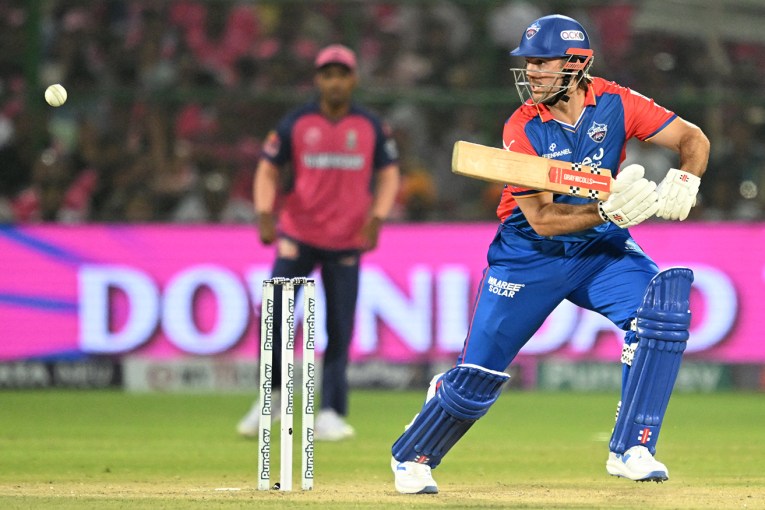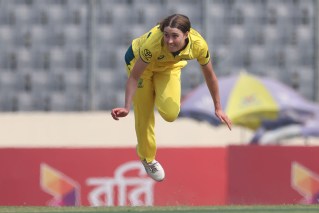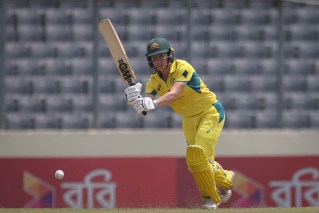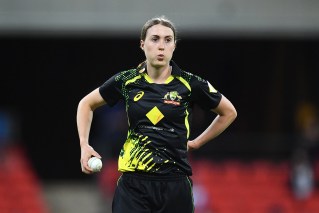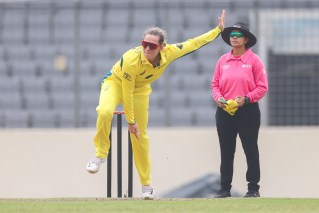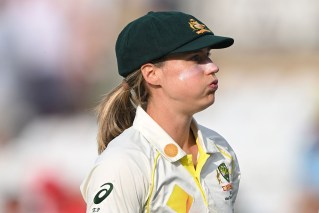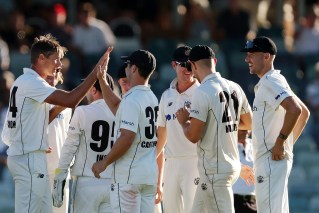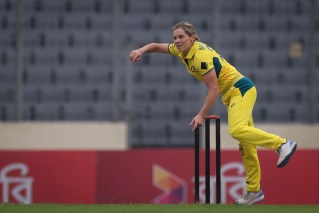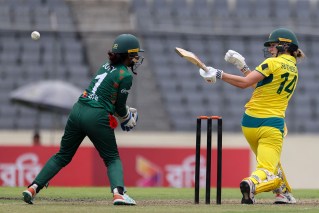Should this man be put in charge of world cricket?

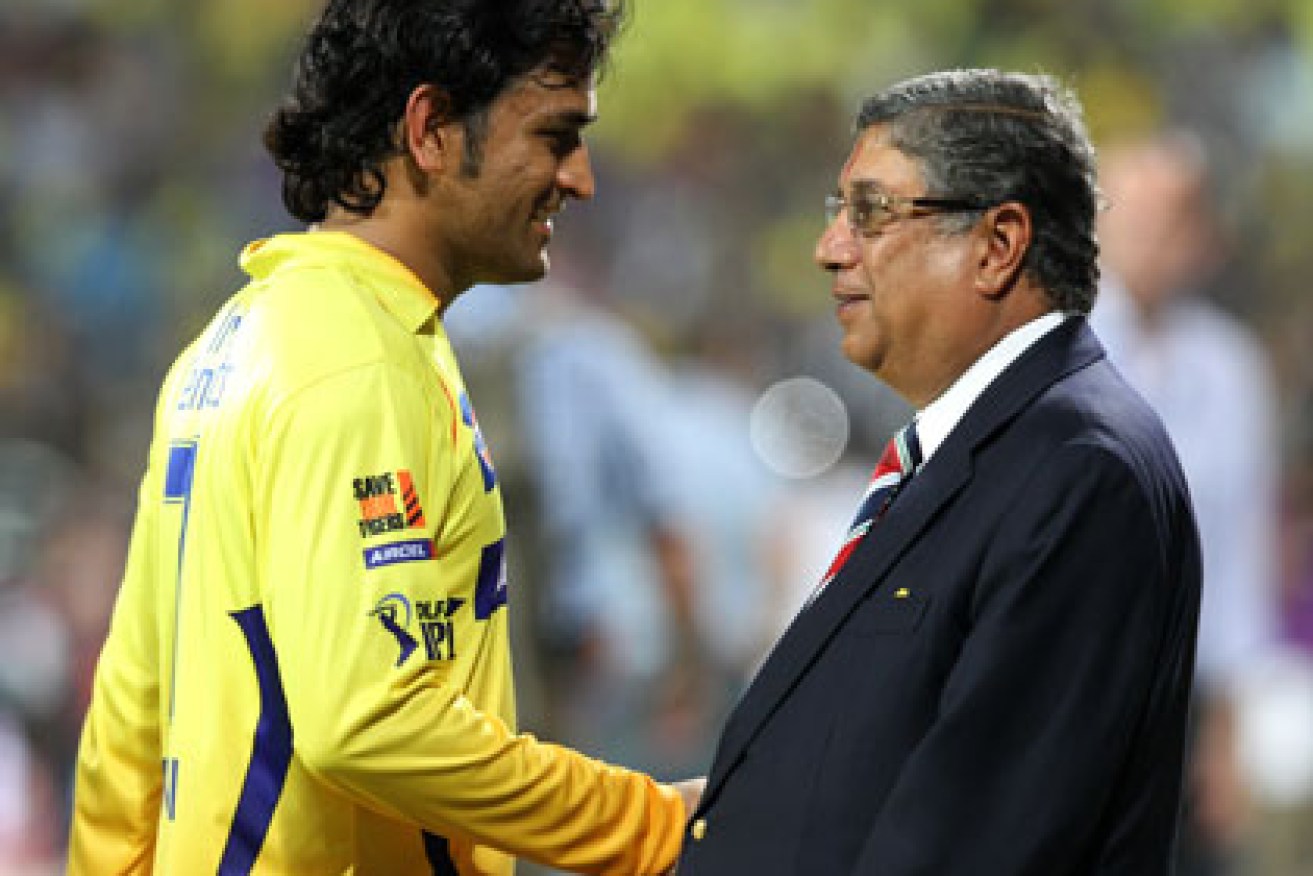
Srinivasan with Indian star M.S. Dhoni. Photo: Getty
The International Cricket Council circus is in town. It is meeting at the MCG this week and the chair should pass to Indian cricket board president Narayanaswami Srinivasan.
If he is endorsed, as seems likely, it’s mind-boggling.
Under an Indian Supreme Court ruling, he was forced to take leave from the Board of Control for Cricket in India (BCCI) while allegations of corruption surrounding his IPL franchise, the Chennai Super Kings, were investigated.
Ironically, the adoption of a new ethical code is on the ICC’s agenda. The topic couldn’t be more timely.
Cricket, particularly on the subcontinent, has been plagued by illegal betting and other forms of corruption on Srinivasan’s watch.
As Srinivasan is currently under investigation in connection with alleged corrupt business practices, he and ethics seem strange bedfellows.
As managing director of the Chennai-based India Cements, he invested in Bharti Cements, owned by the Congress politician Jagan Reddy. As Reddy’s father was Chief Minister of Andhra Pradesh at the time, it has been alleged Srinivasan used his investment to extract concessions from the provincial government. The matter is still before the courts.

Srinivasan with ICC chief executive David Richardson (L) and Cricket Australia chief James Sutherland (C). Photo: Getty
He is also in trouble over his IPL franchise, the Chennai Super Kings. India Cements secured the franchise for $US91 million in 2008. As India Cements’ vice-chairman and managing director, Srinivasan headed up the Super Kings.
His appointment, however, contravened BCCI regulations.
At the time the franchise was purchased, Srinivasan was BCCI vice-chairman and treasurer. Under BCCI regulations, cricket administrators could have no direct or indirect “commercial interests” in board events or matches.
Srinivasan’s role with the Super Kings clearly breached this and constituted a staggering conflict of interest.
Despite challenges in the Madras High Court, Srinivasan triumphed. The regulations were amended, allowing him to serve as an administrator of a competition in which his company, India Cements, owned a franchise.
He has since been accused by some co-owners and the former IPL commissioner, bitter rival Lalit Modi, of rigging the IPL player auction to favour the Super Kings, an allegation which Srinivasan strongly denies.
He is currently embroiled in the Super Kings’ bookie scandal. His son-in-law and Super Kings’ key official, Gurunath Meiyappan, was arrested in May 2013 for illegal betting and passing on information to bookies.
The case reinforced Srinivasan’s conflicting interests. As BCCI president, he was compelled to oversee an investigation into corruption allegations against his own franchise and son-in-law. Srinivasan chose to step aside from the BCCI presidency until the IPL commission had conducted a full investigation into the allegations.
He returned to the presidency in October 2013. But the Indian Supreme Court in March held, “[i]t’s nauseating that Srinivasan continued as BCCI chief”, demanding “he should go if cricket is to be clean”.
Despite all this, the decks have been cleared to rubber-stamp Srinivasan’s elevation to the ICC chair. Last week, the BCCI reconfirmed he was its preferred candidate, while the Pakistani Board indicated it will not block his appointment.

With Indian star M.S. Dhoni. Photo: Getty
Clearly his appointment shows contempt for the current corruption investigations underway in India and is another example of the BCCI flexing its considerable financial muscle.
It bankrolls international cricket and recently threatened to take home its bat, ball and cashed-up kitty if it didn’t get its own way.
The result has been the formation of a ruling triumvirate – India, Australia and England – which will divide the game’s financial spoils between them. The Melbourne meeting will cement the financial and political power of this bloc.
Given the taint surrounding Srinivasan’s activities, his appointment does little to inspire confidence in either the BCCI or ICC.
The former head of the Federation of International Cricketers Associations, Tim May, stated that at a time when cricket needs “to show its leadership [and]… integrity”, it was not a good look to vote in a candidate facing allegations of corruption in India.
But money’s power and the BCCI will get its way in Melbourne.
Srinivasan’s pending appointment makes any discussion on ethics pointless until you read the fine print.
Under proposed changes to the ICC’s ethical code, executive board members will act as representatives of their home boards and not as independent directors of the ICC.
This suits the big three. Under the old code, members were required to act in the game’s interests. Now boards are free to push their own political and financial agendas.
Srinivasan was a staunch critic of the old code. His role was to represent the BCCI, not act as a missionary for the game’s greater global good. With Srinivasan in the chair the BCCI’s code may well become the ICC’s. Given the corruption endemic in Indian cricket, this will not be good for the game.
But money talks and Srinivasan and the BCCI have plenty of it. They will be the ring-masters at this week’s ICC circus.
Tom Heenan lectures in sports studies at Monash University.
